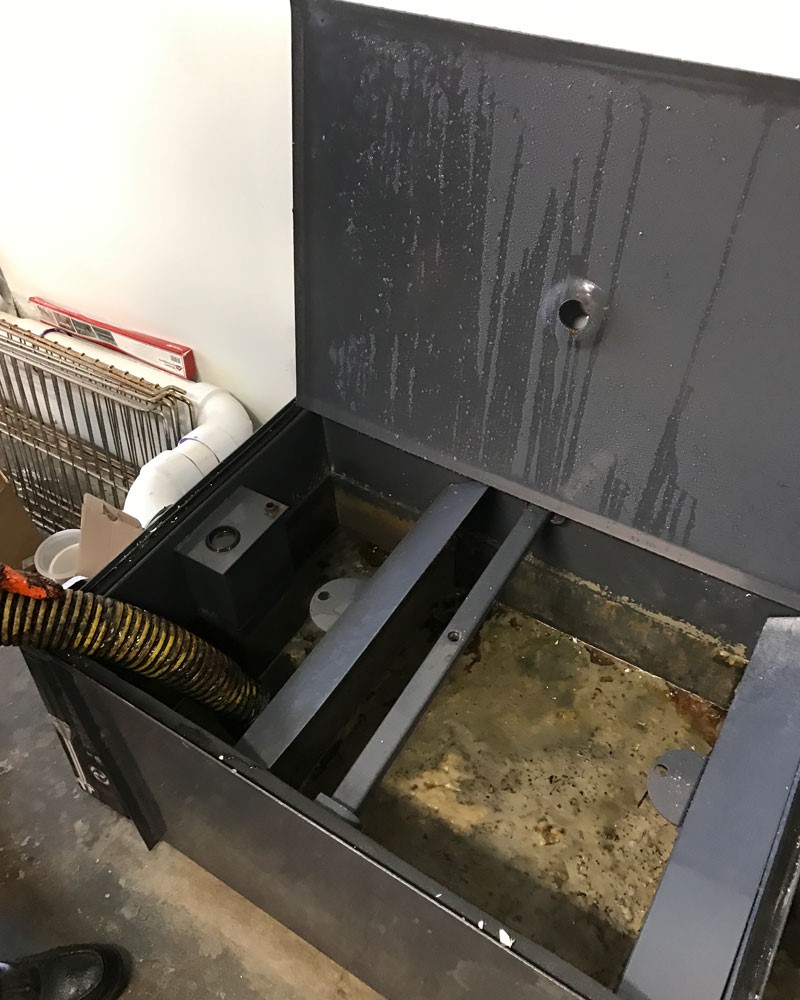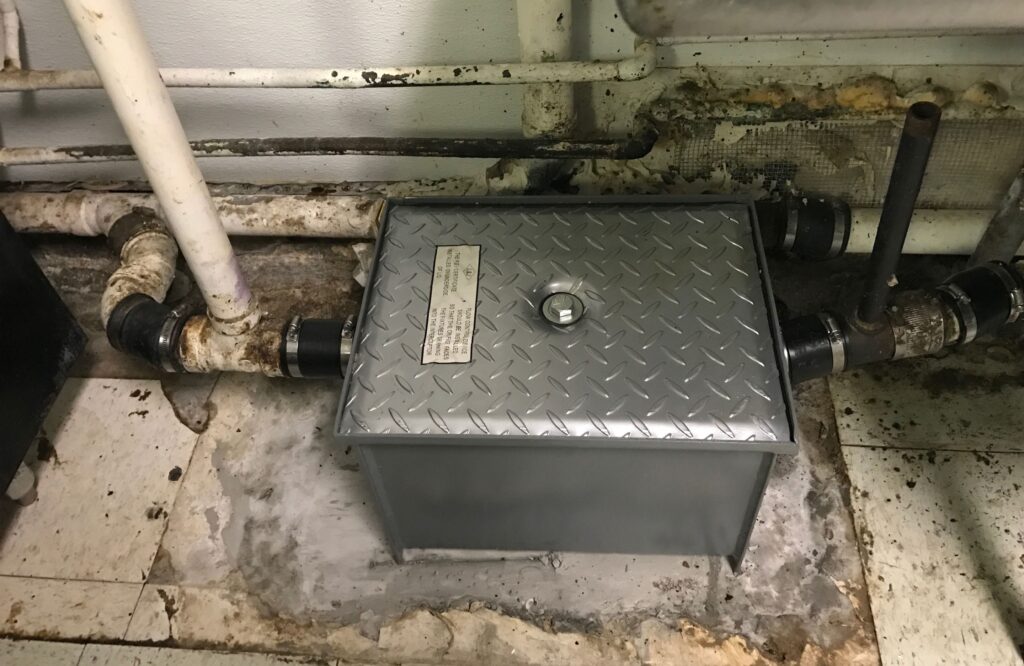Grease Trap Services
Affordable Restaurant Grease Trap Cleaning, Maintenance, Disposal Service in NJ, NY & PA
All commercial kitchens are required to have a grease trap (an inside holding tank approximately 5-50 gallons) or a grease interceptor (an outside tank holding approximately 500-2000 gallons of grease) to prevent oils, fats, and grease from entering the sewer or septic system.
Restaurant grease trap regulations in NJ & NY have become a top priority in recent years as an attempt ensure environmental standards throughout the area. The trap/interceptor separates solids and grease in a holding tank. Most communities have regulations regarding the frequency of cleaning and can impose fines for improperly maintained grease traps. This makes maintaining a grease trap in NJ & NY, not only important to your business’ efficiency, but also to avoid costly penalties and negative publicity.
Increased awareness for environmental issues has pressured restaurant owners to turn to responsible waste management companies like Central Jersey Septic, to assist with the disposal or food bi-products/waste.

Consequences of Poor Grease Trap Maintenance
Grease from the grease pit moves in to the septic/sewer system Potential for waste to have negative impact on the environment Clogging of lines allowing kitchen grease to “back up” in to the facility Foul odors can produced and even possible business interruptions Expensive line cleaning resulting from infrequent grease trap cleaning Potential repercussions handed down by municipalities and/or treatment plants
Benifits of Maintaining Your Grease Traps and Interceptors
Minimize foul odor and possible business interruptions Reduce the discharge of Oil & Grease in to the Wastewater collection system Comply with your receiving plant’s Grease Trap Management Program
ORG Offers Reliable Restaurant Grease Trap Cleaning at a Great Value
Depending on the type of food establishment, maintenance should be conducted about every two weeks for smaller interceptors and quarterly for larger interceptors. The goal is to reduce the discharge of oil and grease in to the wastewater collection system on site. Proper frequency can be determined upon periodic inspections by an experienced grease trap removal contractor. Contact us to get a free quote for your commercial kitchen grease trap removal needs today!
Restaurant owners and managers can take advantage of a customized efficient, cost effective preventative maintenance program to ensure that waste is disposed of properly and on a schedule that meets the needs of the establishment.
- Reduced Rates for Regularly Scheduled Customers – Tax Exempt!
- Professional, Experienced Personnel
- Prompt Service – Emergency Numbers Provided!
- Clean Trucks with Drivers Carrying Cell Phones & GPS

Restaurant Waste Removal / Disposal Services
We offer Grease Trap Cleaning, Inspections, Repairs, and Waste Disposal in the New Jersey and New York areas.

Complementary Grease Trap Client Services
Records Retention / Document Management Regulatory Compliance Liaison Many Other ORG Customer Benefits
Inside Grease Trap Cleaning
Inside grease trap cleaning is provided to commercial businesses in the food service industry; (restaurants, hotels, commercial cafeterias, retirement homes, school dining facilities, etc.) Our technicians will not only clean out your interior grease traps, but will properly scrape down the walls of the trap and inspect the condition of the trap itself, baffles and cover.
Your ORG technician will review and update the paperwork on all of your interior traps and recommend the appropriate service frequency based on the condition of those traps. Your ORG technician will update the service log appropriately to provide health department inspectors with the proper documentation.
Proper interior grease trap servicing is necessary to keep the rest of your indoor pipes running smoothly. Fats, oils, grease and solids can build up in your pipes causing back-ups if service is not consistent. Some towns require a specific frequency for grease trap services. Check with your ORG technician or local board of health for more information to avoid any violation fees.
- A ORG certified and uniformed technicians will pump, clean and inspect your inside grease traps
- Legally dispose of waste with appropriate documentation then submit to local authorities
- Some town and/or states, Department of Environmental Protection or NJ mandate service at minimum every 3 months
- Inappropriate service of grease traps / interceptors from restaurants and other food service is a significant problem for wastewater collection or sewer systems
- FOGS (Fat, Oil, Grease, Solids) can solidify and congest the main pipeline that leads to the sewage
- Failure to properly manage grease traps / interceptors can lead to violations while potentially causing blockage that may prevent you from running your daily business. Grease Trap Jack can replace your grease trap if necessary
Outside Grease Tank Services
Our ORG technicians will empty your outside grease tanks and legally dispose of the waste. At every service, our technicians will check the inlet and outlet pipes, measure the grease thickness, suggest service frequency, possible need for Drain Master, and will document this information for you on our work order.
Proper frequency of service is a must. Outside grease tanks are usually quite large and if not serviced properly, the tanks can have grease build up that becomes hardened. This can cause back-ups or overflows outside the building and draining issues on the inside as well. As always, our service technician will speak to the manager on site if possible to discuss the system condition and any other potential problems

